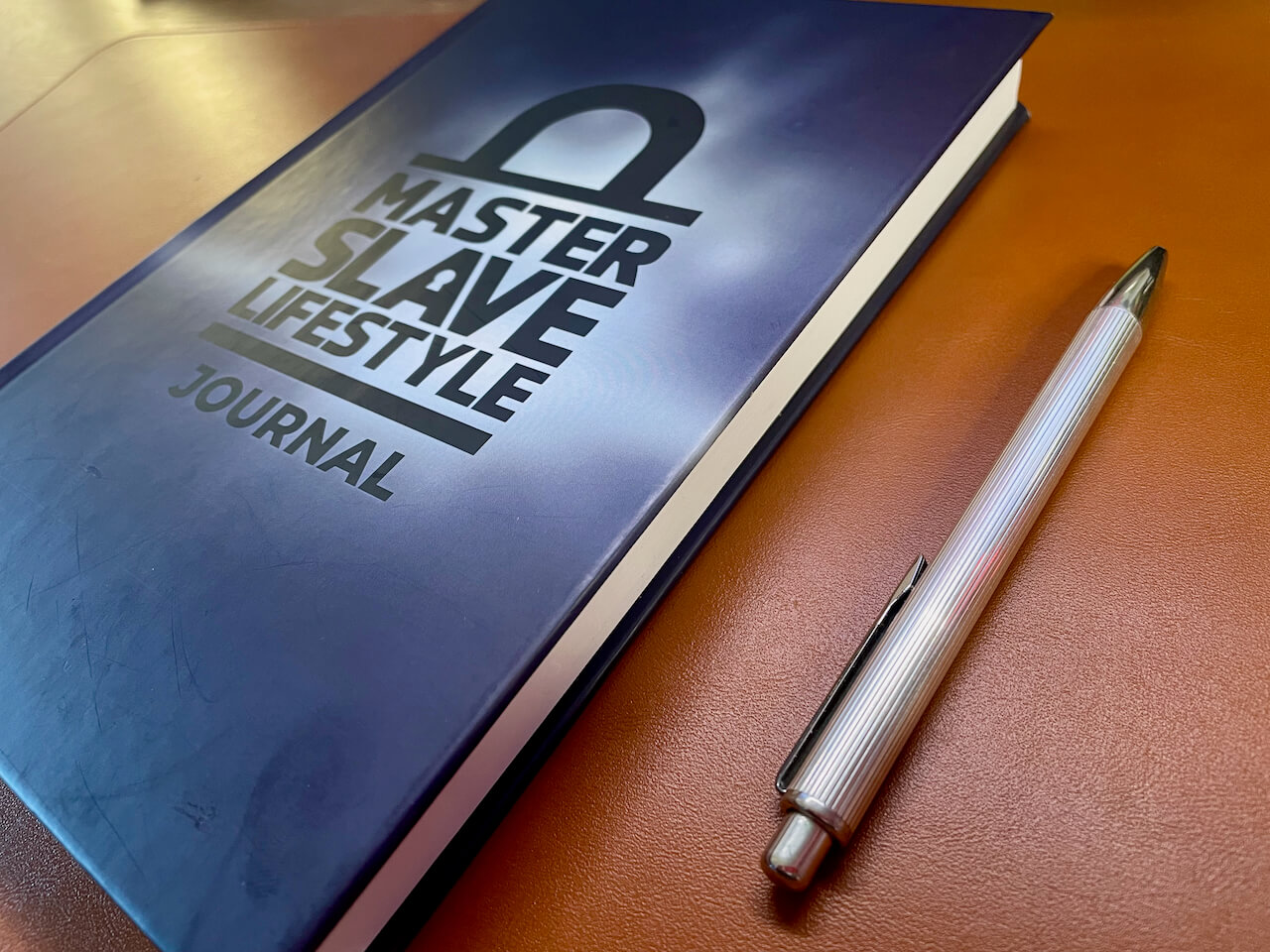When we find our Master or slave, how do we make sure the relationship will be strong and survive. What elements or features make a successful relationship, and how do these manifest in a Master/slave relationship?
Trust
One of the most important elements would be trust. But how do we learn to trust each other?
Someone from my workplace recommended this video from Brene Brown. She is a fantastic speaker, and I recommend listening to her videos. She has spent the last 20 years researching subjects such as courage, vulnerability, shame, and empathy. But I also love how she communicates her research through vulnerability and humour.
What is trust?
Trust is choosing to make something important to you vulnerable to the actions of someone else.
As we deal with someone, over time, moments occur that allow us to trust someone more or less. Imagine for each person we know; we have a marble jar of trust for that person. When the right moments occur with someone, we add more marbles to the marble jar of trust with this person.
What is important is that we often add these marbles through small insignificant moments. Not the large ones.
Brene gave some typical examples of moments from her research, which are typical situations in how we build trust:
- You start to trust your boss because they asked how your mom’s chemotherapy was going.
- Trusting a neighbour because if something is going on with your kid, they will come over and help you out.
- People who come to a funeral to support you.
- Because they ask for help when they need it.
You can see all these examples are small moments.
Is it the same in BDSM?
In a relationship with BDSM and control – there can be lots of big moments where we need to trust – from trusting someone skills with the flogger to trusting your safety through bondage or some form of captivity.
For a Master, it might be giving them access to their house and trusting the slave in it.
But even in a BDSM relationship, these small moments are still essential.
B.R.A.V.I.N.G.
Brene then split how we trust into an acronym: B.R.A.V.I.N.G.
- Boundaries
- Reliability
- Accountability
- Vault
- Integrity
- Non-judgement
- Generosity
So when we trust we are braving connection with someone.
I will go through each of these explaining what they mean, but more importantly, what it means in the context of a Master/slave relationship.
B: Boundaries
I trust you to be clear about your boundaries, and you will hold them, and you are clear about my boundaries, and you will respect them.
A boundary is the line where I end, and someone else begins.
How does this work in BDSM? Part of it is evident, both sides being clear about their boundaries.
This includes the limits we regularly discuss in BDSM, but very much includes boundaries outside of BDSM as well.
In some Master/slave relationships, the boundary can get much more blurred. The slave might be much more open to the Master, both emotionally and physically. This should be done consciously, and with the Master taking responsibility.
Having a completely open slave sounds fantastic, but you also need to take responsibility for the consequences of that. If things go wrong, it can lead to the slave experiencing the full force of negative emotions. I was almost completely open to my last Master, but when that relationship ended, I was completely open to the pain and hurt, which led me to depression. This can also be true for the Master.
When there is this emotional and physical openness, if this has to change, it can be hard for a slave to find themself again.
When letting go of the boundaries, both Master and slave need to take responsibility for the power and consequences – both the amazingly good, and what can go wrong.
Unknown boundaries
But as a BDSM relationship can be so different, there might be boundaries that neither side knew were there. These could be unknown triggers.
A trigger is something that sets off a memory tape or flashback transporting the person back to the events of the past. This can be trauma, but we also have lots of triggers based on how we were brought up and our life experience.
When we go over these unknown boundaries, there needs to be a forum where both Master and slave can talk about the situation. They then can understand what happened and be clear what this means for boundaries going forward.
Limits
In BDSM, we also have the concept of limits. We all have our limits, and we need people to respect this. But in a Master/slave relationship, the Master often pushes and extends the slaves limits.
This should be done with both sides agreeing.
A Master may feel that they know when a slave is ready to have their limit expanded, even if the slave says no. If it all goes OK trust can increase. A Master needs to decide if they have the experience to be able to make the decision, and if they do go through the limit and the slave is NOT OK with it (the Master was wrong), how much damage and lost trust would this cause to the relationship? It could be severe.
If a Master is nervous about this, or not sure, they should have an open conversation with the slave. I’ve had the situation where I trusted a Master to expand my limits, but he was nervous about doing so, I wish he has spoken to me more about it so I could have helped Him feel more secure.
To much support
Another BDSM example could be the slave relying too much on the Master for support. I speak more about this more in the reliability section.
R: Reliability
I trust you because you do what you say you are going to do, not just once, but over and over again.
In our working lives, we are quite used to doing this. We make sure what we say we will do, we do. If we do not, we know our credibility will suffer in the workplace.
It also means we are very clear of our limitations. We do not commit to doing things we know we cannot achieve.
Keep things consistent
In BDSM, we also need to make sure this happens. I know some Masters that might argue that they can do and say what they want, and if this is inconsistent with something they said or did before, that is OK, that is their right as a Master.
But I believe acting in this inconsistent manner impacts the ability of the slave to trust, and this directly impacts whether the relationship is healthy. A Master might think they can increase control by always keeping the slave in doubt about what is right or wrong. But this is a toxic relationship.
Instead of exerting power over someone through inconsistency, one should exert power through consistency.
If someone understands the rules and how they can please their Master, then they can then serve much better.
I am not saying all mind games are bad – they have their place in BDSM. But within reason, and keeping things consistent. And special care should be taken with these in the dynamic of the relationship.
Be clear about your limitations
From a Master point of view, they can also be clear about their limitations. It is easy for a slave to see a Master as godlike and able to solve all situations.
But a Master is human, and humans have their limitations. A Master being clear on their limitations will help the slave to understand when they are asking too much from a Master. An example of this is that slaves often use their Master as their most potent source of support. But they overuse this, and they might be taking too much and expecting too much from the Master.
So the Master needs to be clear and upfront when this happens, and slaves need to understand their Master has limits, and these should be respected.
And both sides need to be clear when their general limitations have been reached. My job can be very stressful at times, and when I first moved to Berlin, I found myself struggling more and more, as I did not want to burden my Master with my worries and issues as I felt I should only be focussing on supporting him. But eventually, I did open up as I needed Him to know what was going on, and I needed help from the only person I knew here in Berlin at the time – my Master.
Consistency between what you say and what you do
It is also essential to back up what you say with what you do.
An example is a Master that says they want a slave to be completely open and honest about how they feel. But if the Master punishes or shouts at the slave for doing this, as the Master was not happy with what the slave has said, is the Master being consistent?
It is much easier to say something than to act it. And with the example above, it is much harder to hear honesty. A Master may argue that when the slave says something terrible, they should punish the slave for it.
But if the Master is encouraging the slave to be honest with their thoughts, and then punishing them for it, are they going to promote honesty from the slave, or for the slave to hide things that the Master does not like hearing?
The slave could start to hide things because trust has been lost. What the Master said, to what the Master did was not consistent, it was different.
I have used honesty as ane example here, but this is true of anything.
A: Accountability
I can only trust you if when you make a mistake, you are willing to own it and apologies and make amends.
Let’s be honest mistakes happen. In a BDSM relationship, it is how we deal and own the mistakes.
It is common for some Masters to blame anything that goes wrong on other people – including their slave. They are perfect, and everyone around them is wrong. But no matter how large the ego, a Master must own their mistakes and to learn from them, and when appropriate, be open to their slave about this. Otherwise, how can the relationship survive long term?
And this means slaves should be open and accepting to a Master admitting their mistakes and thank their Master for doing so. Depending on the sort of Master/slave relationship, this can be done in a very slavish manner.
This links back to reliability: How can someone be accountable if the rules change all the time. How can any mistakes be owned if the rules are changed, so it is no longer a mistake?
Although I have empathised the Master here, this is also true of slaves. When we have done something wrong, we should own that mistake, apologise and learn from it.
What if there is not a clear right or wrong?
There can be times when neither party feels like they have done something wrong, yet neither person is happy as something went wrong. I would recommend here both Master and slave to discuss this with the aim of understanding each other’s perspectives, rather than finding fault.
If both people can understand why the other person feels the way they do, trust can build as they can trust each other to understand each other’s point of view, and this helps the relationship to grow.
Consistent punishment
Consistent punishment (which also links with the reliability section above) is important. In some Master/slave relationships, punishment is an essential component in keeping the relationship a Master/slave one, while also ensuring the slave continues excellent service to the Master.
This works best when punishment is consistent. So punishment should never be done in anger, or because a Master is having a bad day. But only when the slave has done something wrong. I would argue that it needs to be clear what has been done wrong, and for the slave to learn from the punishment to ensure better service for the future.
Being accountable for what you say
I mentioned in the previous section that people need to be consistent in what they say or do. If they do not, they should be held accountable for it.
V: Vault
What I share with you, you will hold in confidence, and you acknowledge confidentiality.
Often we can share things we should not share to try and hotwire connection. But we want our stories respected by the people we tell them to, and for us to respect stories that people tell us.
Master using secrets for power
One point here in a BDSM relationship it how secret might be used or not. A Master can use the information given to him by a slave to increase control of the slave. But if you use a secret in the wrong way it can backfire.
I once had a Master who knew something about my past use it to test my ego and to see if I would still serve Him. I “passed” His test but because he used a very vulnerable secret, I felt very hurt afterwards, and this impacted my trust of him. It did this to the point I decided I could never have a relationship with Him.
Visiting a Master
When a slave is invited to a Masters home, the Master is trusting the slave to hold His household and anything discussed within the household in the vault.
As time goes on, more trust increases, the Master may make more of His life open to the slave.
A slave should be aware of how much trust this requires from a Master, and this trust must not be abused.
I: Integrity
I do not trust you if you do not come from a place from integrity and encourage me to do the same.
What is integrity?
- Choosing courage over comfort
- Choosing what’s right over what’s fun, fast or what’s easy
- Practising your values, not just talking about them
So how do we make sure we keep our integrity. The first thing is to try and find out what are your values. Then the second is to find out what are you the values of the person you want to or are having the relationship. In a polyamorous family, this might involve understanding multiple people.
Keeping your values
In a BDSM relationship, it is essential to keep the values. If you are a Master with complete control, the only person that can control your integrity is Yourself. Therefore you need to make sure that as the relationship changes and evolves You keep to Your values.
Values and principles can change over time. But any change should be done consciously and because your values are evolving. Not that you are giving them up because it is the easy way out.
Attempting to get a slave to change its values can also be very damaging. Some Master may do this because it increases their sense of control. But this can be profoundly damaging to the slave.
You cannot change the type of person someone is.
This is why it is essential to understand the values of your Master or slave before committing to a relationship.
N: Non-judgement
I can fail, and ask for help without being judged by you, and you can fail and ask for help without me judging you.
I think it can be much easier for a slave to ask for help rather than a Master. But this is as important for the Master. A Master should be able to ask the help of their slave, and the slave does not judge them for it.
As mentioned above, slaves can see their Masters as superhuman. But Masters are only human, and will fail and need help. A slave must recognise this fact and become comfortable with it.
So when the Master does need to ask for help, the slave can be there without judgement. The Master also needs to be brave enough to tell the slave they need help, or they are struggling.
I had a painful learning with this concept. Once I had a Master, and his behaviour changed completely. I had no idea what was going on, but from his behaviour, it seemed like he had lost all interest in me.
Luckily I had a friend, and they were able to observe that the Master was really struggling because of an issue. As I was in the middle of the situation, I could not see it. After my friend helped me understand this, I was able to decide to support the Master through this hard time. But if the friend had not been there, I think I would have broken up with the Master.
In this story, many things can be improved—myself not asking questions to the Master to understand what is going on. The Master could have been more forthcoming with letting me know He was struggling. But in this, we also have an excellent example of how Master or slave need to react in these situations with non-judgement and in this case, support.
I have used the Master as the main example here, but this can also be true of slaves. When I mentioned previously about not wanting to speak to a Master about my limits being reached with work, I was worried that he would judge me and that it was wrong for me to be open that I was struggling with work issues.
So in a Master/slave relationship, we need to be non-judgmental with each other about failing.
G: Generosity
If I screw up, say something, or forget something, you will make a generous assumption: that I should have done the thing, but you still know I care for you. And you will let me know I have done something wrong.
A good summary of generosity is that when a mistake happens, it is not due to evil intent, and we forgive it.
Often we can feel hurt, and then act in ways that do not help. For example, a friend who forgets an important date, and does not check up with you. Sometimes we can handle this by ignoring the person for a while. Instead, we should let them know we feel a bit hurt, BUT also that you know they care for you and you know that they did not mean to hurt you. This is assuming generosity.
In a BDSM relationship, this is also true with how we might want to talk around issues like this.
If there is a relationship with punishment, it is used when it is needed, but we should still assume generosity when it is appropriate.
And we should not delay punishment to make a slave feel even worse then they do. So those that do use punishment, it is not black or white all the time. The use of it, and how it is implemented is much more subtle, while still being consistent.
The end
So we have reached the end of braving. I do not see this as an all-inclusive list of things we should be aware of when having a BDSM relationship.
But I hope this article gets you thinking of what is significant for you and your relationship, and how you can create space for both Master and slave for BRAVING connection.
And if things are not quite working in your relationship, perhaps use the BRAVING model to see where things might not be working quite right.
Brene had a powerful statement: We can have a moment when we walk past someone, and they look bad. Do you speak with them, or no?
In these moments, there is the opportunity to build trust and connect more, and there is also the chance to betray trust. What would you like to have in your Master/slave relationship?

Find Your Kink Identity?
Are you ready to transform, go deeper and truly begin?

SLAVE – Are You Ready to Embrace Your True Nature?
Dive into the FREE slave Induction course
Confront your boundaries, challenge your desires. This is more than a course; it’s a call to awaken your slavery. Confront your fears, embrace your submission.
Act Now – cross the threshold from fantasy to reality.

Discover Your Path with the MSL Journal
Unlock Your Journey: Embark on a transformative path with my physical journal, specially crafted for the Master/slave lifestyle. It’s not just a book; it’s your own personal guide, designed to illuminate your deepest desires and needs.
- ?️ Reflect and Grow: Overcome challenges with insightful exercises.
- ? Define Your Desires: Clarify your needs and wants in a safe, structured manner.
- ?️ Plan Your Steps: Navigate your path with confidence and clarity.

Buy the Book:
Light and Shadow
DISCOVER how Master/slave relationships work and how to PROTECT yourself.
- Suitable for beginners and advanced
- PLUS a companion 8-day email course that you can enjoy alongside the book



